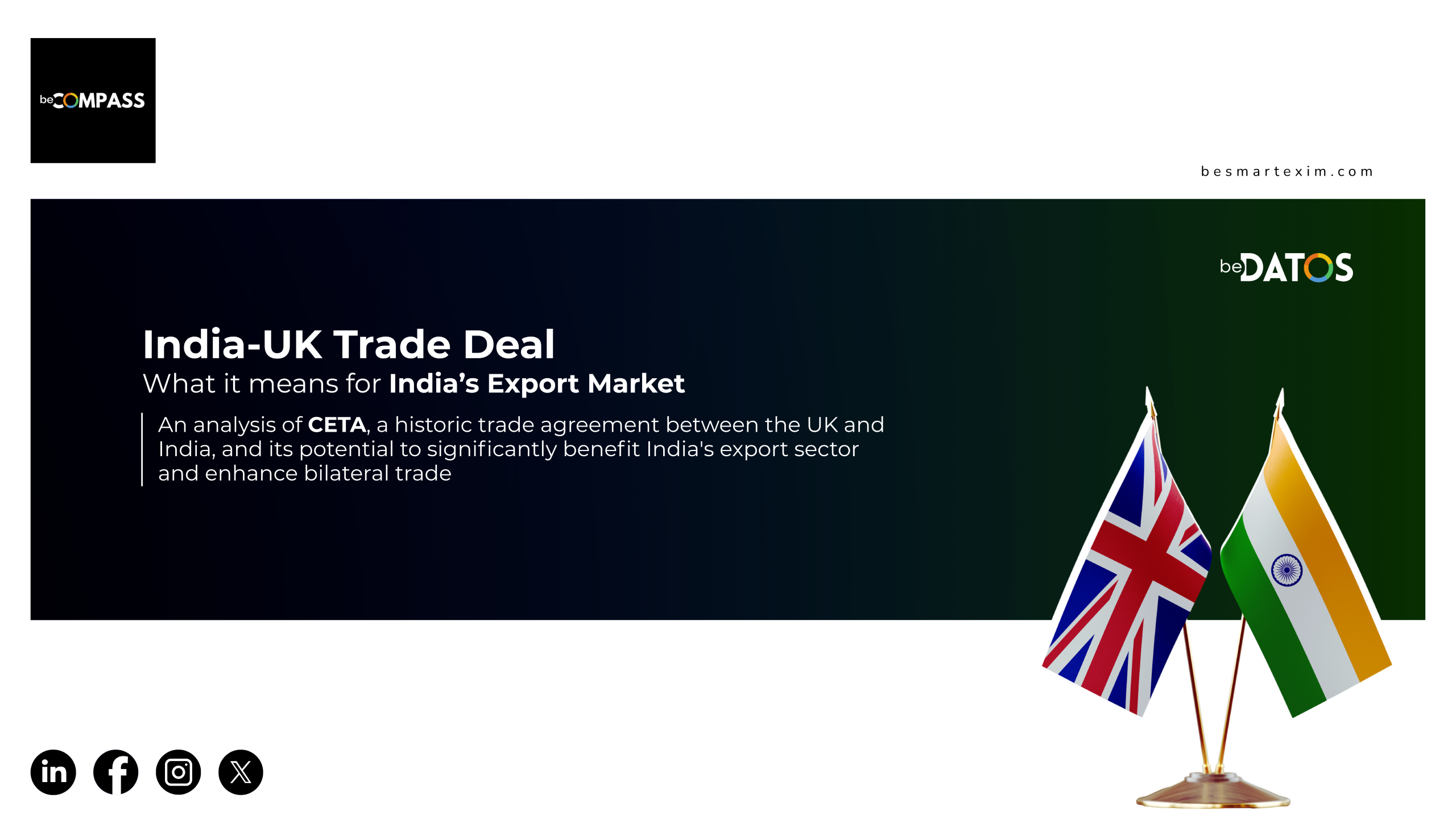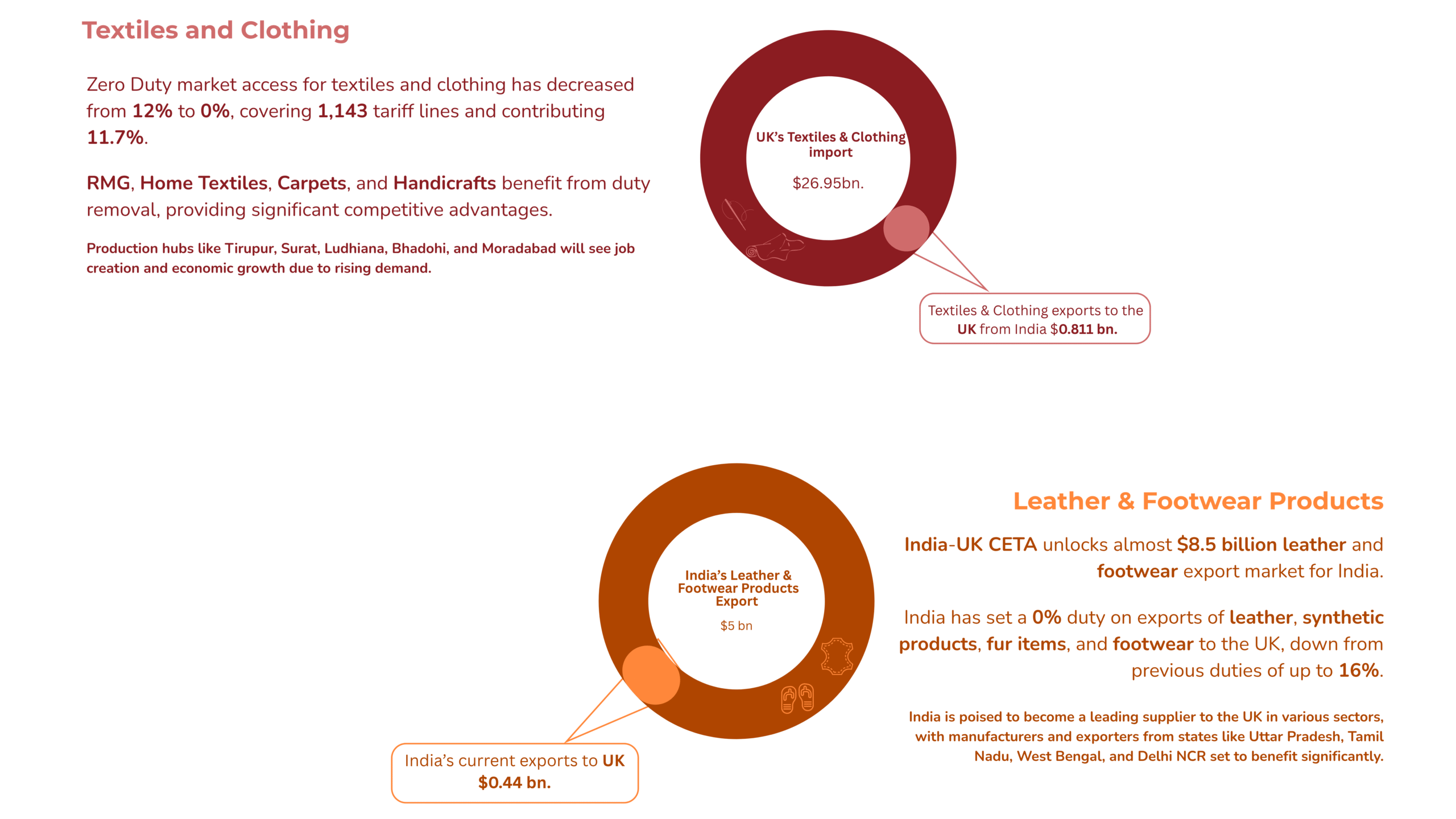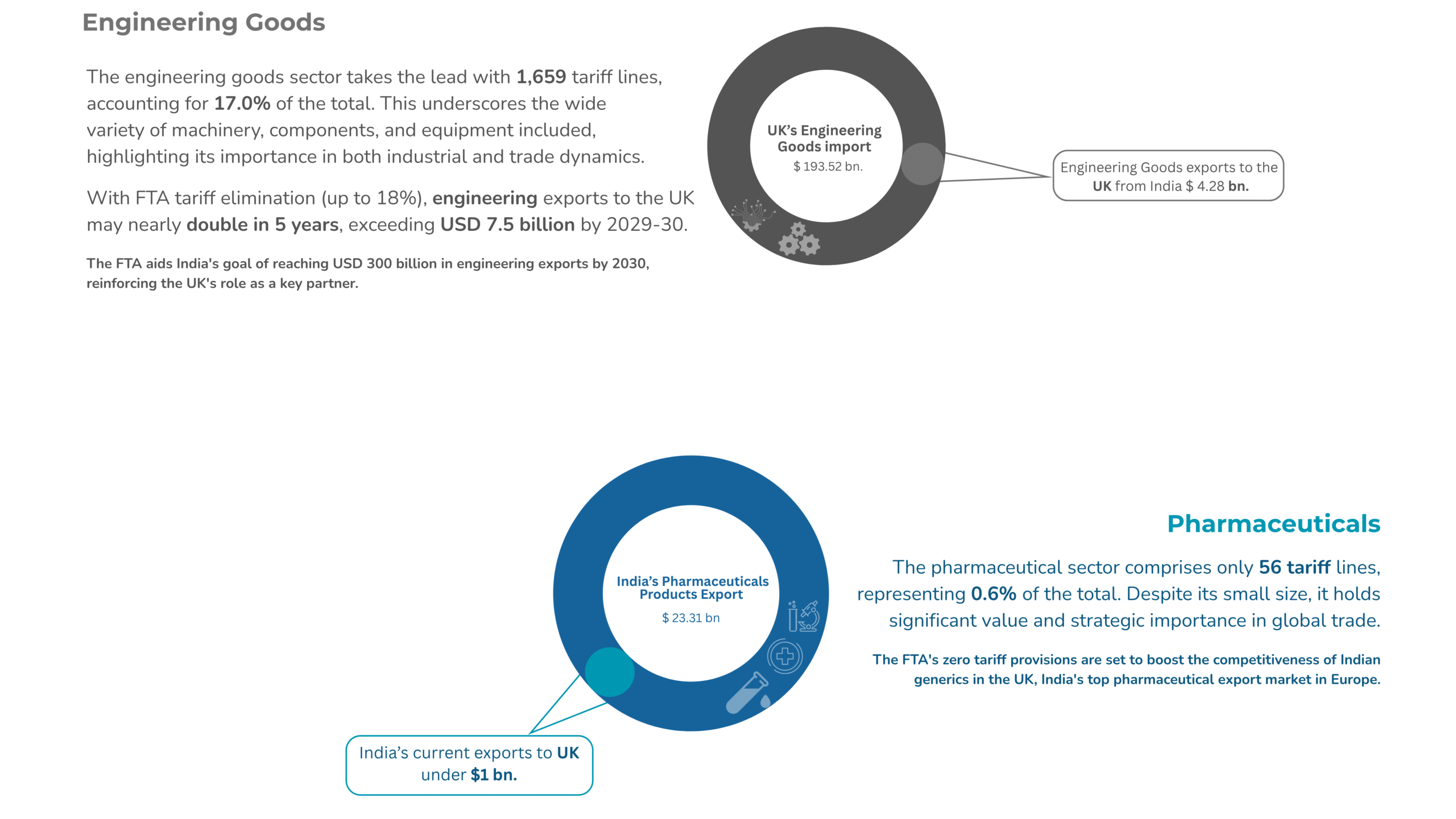
The Comprehensive Economic and Trade Agreement (CETA) is a historic trade deal between the United Kingdom and India, which aims to facilitate bilateral trade by doubling it to US$120 billion by 2030.
The History of the deal
In May 2021, the former PM of the UK, Mr. Boris Johnson, and the PM of India, Mr. Narendra Modi, announced a better trade partnership, setting the stage for FTA talks. In January 2022, the official FTA began via a virtual first round. Over 14 formal rounds are held from 2022 to early 2025 across New Delhi and London. In 2024, the present PM of the UK, Keir Starmer, supports revitalizing stalled talks. In early 2025, talks formally relaunched with high-level visits and renewed momentum. By early May 2025, negotiators concluded the final version of the India-UK FTA after extensive consultation across 26 chapters covering goods, services, investments, IPR, procurement, and regulatory issues. In July 2025, the India-UK FTA was formally signed.

This agreement opens up new export opportunities for labor-intensive sectors such as textiles, leather, footwear, gems and jewelry, marine products, and toys. It focuses on generating large-scale employment and empowering women-led enterprises and micro, small, and medium-sized enterprises (MSMEs).
How it can be beneficial:
Trade and Investment Opportunities:
The India-UK Comprehensive Economic and Trade Agreement (CETA) targets to enhance trade and investment while protecting India’s key economic interests.
Tariff Reduction:
The agreement eliminates tariffs on 99% of tariff lines, allowing almost all Indian goods to enter the UK duty-free. India is now expected to open over 85% of its tariff lines for more than 90% of UK exports, providing immediate duty-free access for over 20% of these exports. Sensitive sectors such as dairy and gold are protected, with a gradual reduction in tariffs for strategic products.
Simplified Trade Rules:
Exporters will be able to self-certify the origin of their products, which will ease compliance and reduce paperwork. No origin documentation will be required for small consignments valued under £1,000, facilitating e-commerce and supporting small businesses.
Services and Professional Mobility:
The agreement provides enhanced access for Indian services in sectors like IT, finance, education, and healthcare. There will be clear entry rules for professionals, including business visitors and independent workers. Up to 1,800 Indian chefs, yoga instructors, and musicians will be allowed to work in the UK each year.
Double Contribution Convention:
The agreement exempts Indian workers and employers from UK social security contributions for up to 3 years during temporary assignments. This can benefit approximately over 70,000 workers and many companies, resulting in savings of over INR 4,000 crore.
Let’s take a look how India’s export market can be impacted

The UK market is opening up exciting opportunities for sectors like plantation and oilseeds. With the new Free Trade Agreement (FTA), we can expect a boost in exports, particularly for Indian instant coffee, which is already gaining popularity. Indian oilseed exporters will also benefit as they reach a larger audience and solidify their presence in the market.



In the medical device sector, many products, such as surgical instruments and diagnostic equipment, will no longer carry tariffs, which will help reduce costs for Indian med–tech companies. This change makes them more competitive in the UK market. Currently, India exports about $2.2 billion worth of medical devices globally, but only $37 million of that goes to the UK. The medical device market of the UK is valued at almost $32 billion in the year 2024 and is now expected to grow to $69 billion by 2035. There are various opportunities for Indian manufacturers, with an impressive growth rate projected.
The Comprehensive Economic and Trade Agreement (CETA) between India and the UK is an important step toward strengthening economic ties and opening new opportunities for growth, jobs, and innovation. According to expert opinions, this historic deal will double trade between the two countries to nearly US$120 billion by 2030. By removing tariffs on most goods, speeding up trade processes, and expanding access for skilled professionals and services, the agreement achieves this goal. It enables various industries and businesses to grow their presence in international markets while protecting strategically sensitive sectors. This agreement can provide a strong foundation for long-term growth and prosperity for both countries and can make India a more credible and competitive trading partner. This is because India’s exporters across various sectors will be able to benefit from the UK’s dynamic market.

